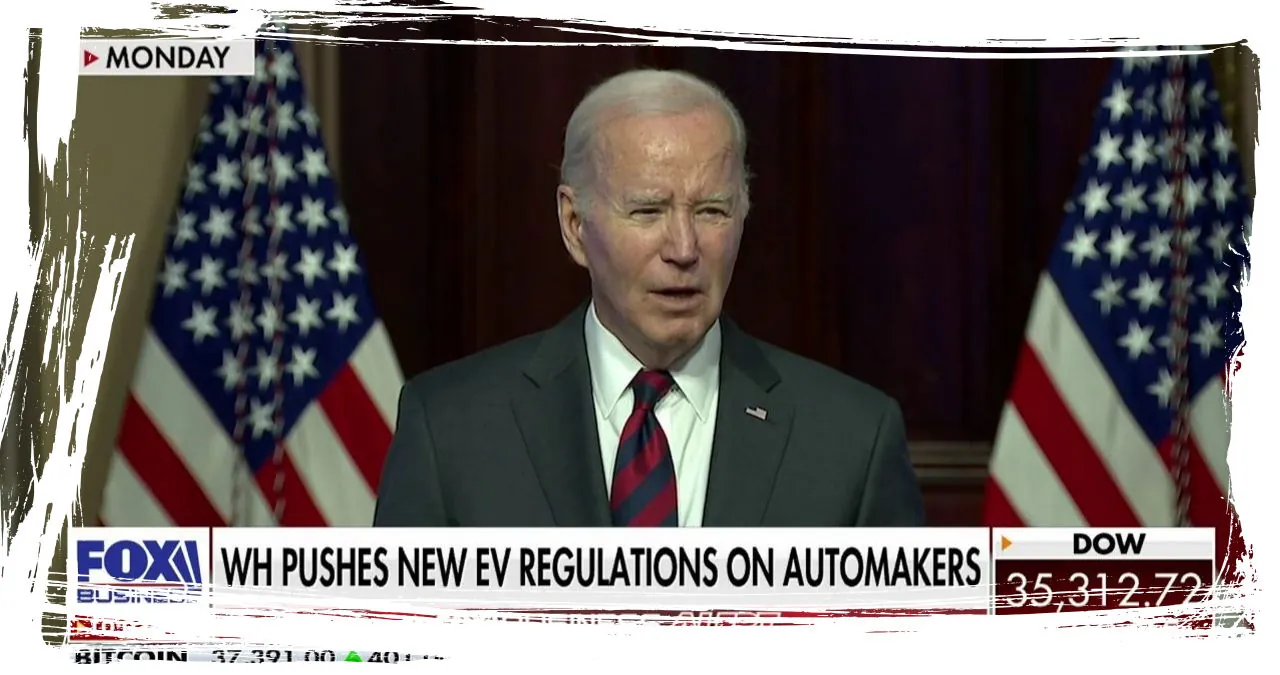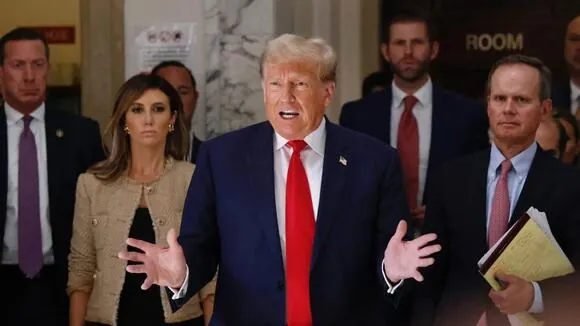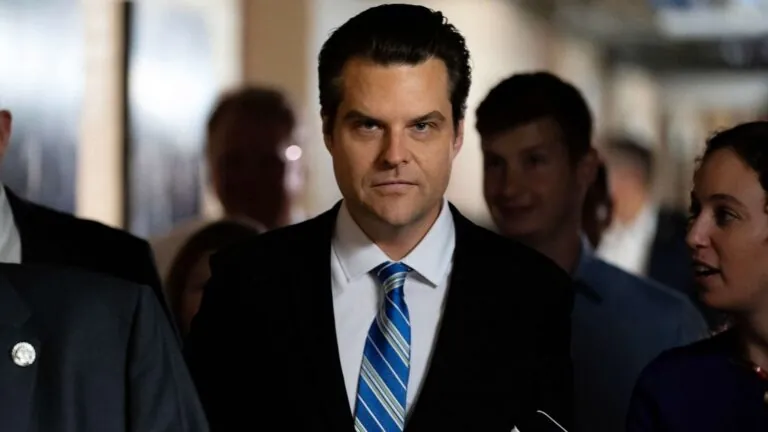Over 3,000 auto dealers unite to oppose Biden’s electric vehicle mandate
More than 3,000 auto dealers across the country have formed a coalition and are reaching out to President Biden with an open letter. In the letter, they are urging the President to reconsider his administration’s aggressive push for electric vehicles (EVs) and to take a more measured approach. The coalition is concerned about the potential impact on their businesses and the broader auto industry as a whole. They believe that a more balanced and gradual transition to EVs would be more sustainable and beneficial for all stakeholders involved.
A coalition of car dealers from across the United States, representing all major car brands, is strongly opposing the Biden administration’s recently released tailpipe emissions standards. These regulations, announced by the Environmental Protection Agency (EPA), are the most stringent federal regulations of their kind to date. The coalition argues that the regulations, which aim to make the majority of new vehicle purchases electric within ten years, will have a significant impact on their industry.
In a letter addressed to President Biden on Tuesday, the dealers expressed their belief that these vehicles have immense potential and anticipate their popularity to increase in the future. However, they pointed out that the current demand for electric vehicles is not keeping pace with the influx of battery electric vehicles arriving at their dealerships due to existing regulations. As a result, they are facing a situation where an excess of BEVs is accumulating on their lots.
In a recent letter, it was expressed, “There was a great deal of optimism and excitement surrounding electric vehicles (EVs) last year. Early adopters eagerly awaited the opportunity to purchase these vehicles as soon as they became available. However, the enthusiasm seems to have waned. Presently, the number of unsold battery electric vehicles (BEVs) at our dealerships is rapidly increasing, as they are not being purchased as quickly as they are being delivered. This is the case despite significant reductions in prices, manufacturer incentives, and government support.”
A new report has shed light on the hidden expenses associated with electric vehicle mandates, revealing that these mandates ultimately result in higher costs for consumers. Contrary to popular belief, the report argues that electric vehicles actually remain more expensive compared to their traditional counterparts. The findings challenge the notion that electric vehicles are a more affordable and cost-effective option for consumers.
President Biden has set a goal of achieving 50% electric car purchases by 2030. To reach this objective, his administration is implementing stringent regulations that primarily focus on future gas-powered vehicles. (Image credit: Anna Moneymaker / Pool / Getty Images / File | Sean Gallup / Getty Images / File / Getty Images)
According to the dealers, the goals of the EPA regulations are commendable. However, they believe that these goals are unrealistic given the current and projected customer demand. The dealers also emphasized that the number of electric vehicles (EVs) in their lots is a strong indication of customer demand in the auto marketplace.
The EV industry faces several challenges, as highlighted in the letter. These include a shortage of charging infrastructure, instability in the energy grid, and a limited supply of reliable minerals necessary for EV batteries.
A recent report highlights the concerns surrounding a Beijing-backed green energy firm’s expansion in the United States, as it poses a significant national security risk. The firm, whose name is not disclosed in the report, has been investing heavily in renewable energy projects across the country. However, experts warn that this expansion could potentially grant China access to critical infrastructure, putting US national security at stake. The report emphasizes the need for increased scrutiny and regulation to safeguard vital sectors from foreign interference.
In a letter addressed to the President, a plea was made to reconsider the government’s electric vehicle mandate. The letter emphasized the need to slow down and allow for advancements in battery technology, affordability of battery electric vehicles (BEVs), and the development of domestic sources for battery minerals.
The charging infrastructure needs time to be built and demonstrate reliability. Above all, it is crucial to give the American consumer time to become accustomed to the technology and decide to purchase an electric vehicle.
The Environmental Protection Agency (EPA) and the White House recently introduced tailpipe regulations aimed at enhancing air quality and reducing greenhouse gas emissions in the United States. These regulations will affect car model years from 2027 to 2032. The goal is to encourage the adoption of electric vehicles, with the White House stating that by 2032, up to 67% of new sedan, crossover, SUV, and light truck purchases, as well as a significant percentage of bus, garbage truck, short-haul freight tractor, and long-haul freight tractor purchases, could be electric.
A photograph captures a Tesla electric car plugged in and charging in Mountain View, California.
President Biden has previously established a target of achieving a 50% adoption rate for electric vehicles (EVs) in car purchases by 2030. According to the White House, these regulations will create a clear and viable path for the continuous growth of EV sales.
Tom Maoli, the founder of New Jersey-based auto group Celebrity Motor Cars, expressed his concerns about the mandates being imposed. He highlighted that these mandates are forcing consumers to purchase something they may not necessarily want. In an interview with Fox News Digital, Maoli emphasized that consumers are hesitant to enter the electric vehicle market due to the absence of adequate infrastructure and concerns regarding range. Additionally, he pointed out that the cost of purchasing an electric vehicle is approximately 20 to 30% higher.
According to the speaker, despite the various incentives provided by both car manufacturers and the government, consumers are still reluctant to purchase electric vehicles (EVs). The speaker argues that the government should refrain from imposing mandates and instead allow the market to naturally determine the success of EVs. The speaker believes that EVs will indeed have a place in the marketplace, but it should be up to consumers to decide which type of vehicle best suits their needs and preferences.
According to a report from the Alliance for Automotive Innovation, gas-powered cars accounted for 93% of all new car sales in 2022. Despite the growing popularity of electric vehicles (EVs), they still face challenges in terms of cost and efficiency compared to other options. Moreover, experts have raised concerns about the potential national security risks associated with a rapid shift to EVs, considering China’s dominant position in the global EV industry.
China is a dominant player in the production of lithium-ion batteries, which are a crucial component of electric vehicles (EVs). The International Energy Agency (IEA) states that China produces approximately 75% of all lithium-ion batteries globally. Moreover, the country holds an impressive 70% of production capacity for cathodes and 85% for anodes, two essential parts of these batteries.
Furthermore, China holds over 50% of the processing and refining capacity for lithium, cobalt, and graphite, as revealed by data from the IEA. These three essential minerals, along with copper and nickel, play a crucial role in the manufacturing of electric vehicle (EV) batteries and other green energy technologies. Notably, Chinese investment firms have displayed a proactive approach in acquiring shares in African mines, aiming to secure a strong grip on mineral production.
More News:







